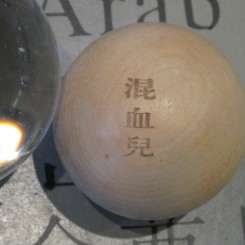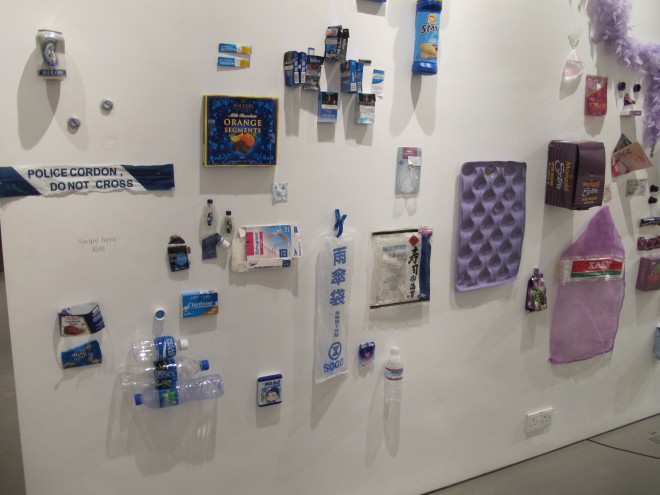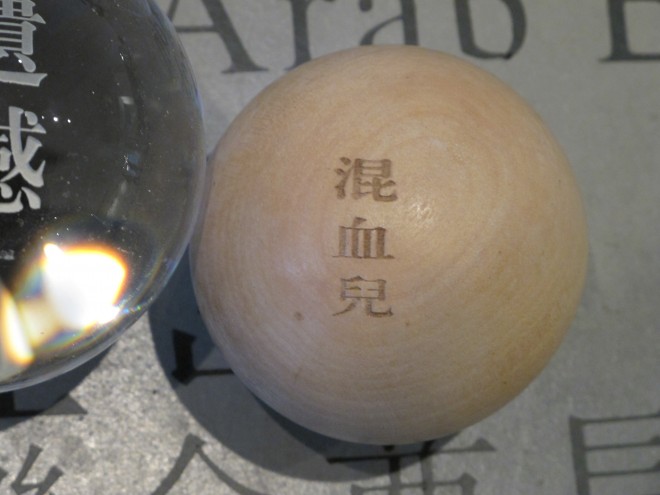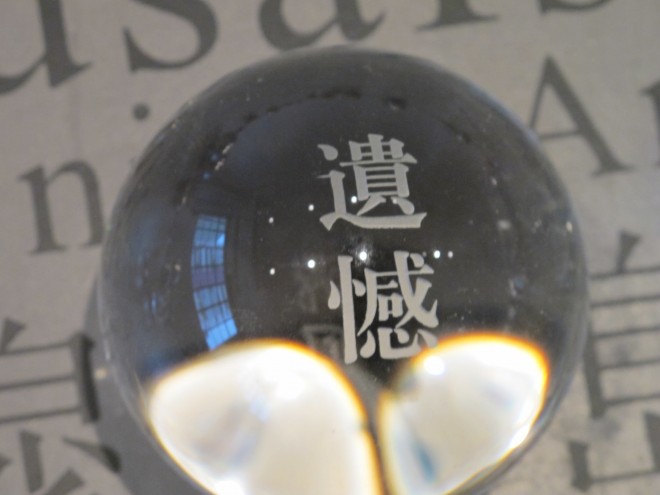“Qiu Zhijie – The Universe of Naming”
Spring Workshop (3/F Remex Centre, 42 Wong Chuk Hang Road, Aberdeen, Hong Kong) May 23 — Aug 18, 2013
In Hong Kong, where every square inch of land is worth its weight in gold, a space as expansive as Spring Workshop — though located far from Central — is a rarity indeed. Qiu Zhijie has re-conceptualized his signature maps to create “The Universe of Naming” – an exhibit specially tailored to this space. Over two hundred globes of various sizes are placed around the room; they are made of three different materials – wood, stainless steel, and glass. Each globe is engraved with English text, which varies based on the globe’s material. The words engraved on the glass globes are related to inner emotions and relationships, while the wooden ones speak of human occupations and natural disaster, and the stainless steel globes revolve around political actions and ideology. As viewers move through the space, they inevitably bump into the globes, effectively “churning up” a mix of ideas and meaning by causing the spheres to collide and roll across the floor, which is covered with large-scale maps of terrain and disputed areas.
These random relationships can be seen in another section of the exhibit – the student workshops. Qiu Zhijie asked some local students to gather a large number of everyday items cast out in the nearby areas. He has arranged these objects in the collage of his “conceptual maps” based on an examination of their color, use, and meaning, thus attempting to build a complete narrative out of the insignificant debris generated by the city. The principle behind this display is very similar to Aby Warburg’s “Mnemosyne Atlas,” an early twentieth-century library composed of eccentric works with oblique anthropological qualities. Warburg arranged books in a seemingly random system, and the nature of these volumes covered a range of topics: art history, philosophy, astrology, and even daily correspondence. From the point of view of a cultural scholar, these fragments of civilization represent the memories of humanity. The relationships between the individual pieces also reveal the tethers between civilization and our values. Perhaps there is similar revelation to be found when we examine the relationship between those students who went around gathering trash, and works of art being sold at astronomical prices.





